Kitturiaq is a film of genre Documentary
Kitturiaq (2013)
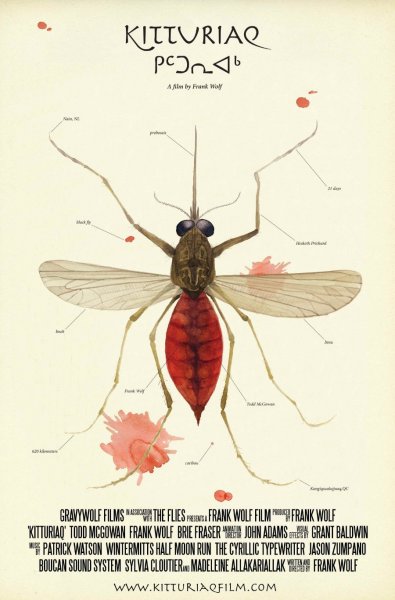
If you like this film, let us know!
- Infos
- Casting
- Technical infos
- Photos
- Videos
- Film quotes
- Characters
- Music
- Awards
Genres Documentary
Kitturiaq is a 2013 Canadian documentary film by Frank Wolf that follows two friends on a remote 620 km wilderness canoe journey over the vast Labrador Plateau. Set in the Inuit/Innu regions of Nunatsiavut and Nunavik, the film shares the cultural perspectives of local people in the context of the journey. The film airs on CBC's documentary (TV channel) in Canada and features music by Patrick Watson, Half Moon Run, The Cyrillic Typewriter, Wintermitts, Boucan Sound System, and throat singers Sylvia Cloutier and Madeleine Allakariallak.
Comments
Leave comment :
Suggestions of similar film to Kitturiaq
There are 8971 with the same cinematographic genres, 11126 films with the same themes (including 4 films with the same 7 themes than Kitturiaq), to have finally 70 suggestions of similar films.If you liked Kitturiaq, you will probably like those similar films :
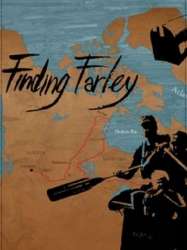
Finding Farley (2009)
, 1h2Origin Canada
Genres Documentary
Themes Films about writers, Environmental films, Seafaring films, Sports films, Transport films, Documentary films about sports, Documentary films about environmental issues, Documentaire sur une personnalité, Documentary films about technology, Documentary films about nature
Rating74%






Mammalian (2010)
Directed by Frank Wolf
Origin Canada
Genres Documentary
Themes Environmental films, Seafaring films, Sports films, Transport films, Documentary films about sports, Documentary films about environmental issues, Documentary films about technology, Documentary films about nature
Rating78%






Waterwalker (1984)
, 1h27Directed by Bill Mason
Origin Canada
Genres Documentary
Themes Environmental films, Seafaring films, Sports films, Transport films, Documentary films about sports, Documentary films about environmental issues, Documentary films about technology
Actors Bill Mason
Rating80%





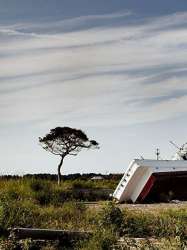
Genres Documentary
Themes Environmental films, Seafaring films, Transport films, Documentary films about environmental issues, Documentary films about historical events, Documentary films about nuclear technology, Documentary films about technology, Disaster films, Films about earthquakes
Rating67%





Surviving the Tsunami brings together social, environmental, and personal perspectives of the national catastrophe of the Fukushima nuclear meltdown. In the documentary, Kyoko Miyake travels back to her hometown in Namie, Fukushima, to revisit her old life and assess the trauma still lingering from the disaster. She revisits Namie, her mother's hometown and meets the people who depended on the success of the nuclear plant for their livelihood. The film also follows Bunsei Watanabe and Kyoko Miyake's Aunt Kuniko, two people who hope for the rejuvenation of Namie, despite the disaster that has occurred. Despite having lost family, friends, and jobs due to the meltdown and subsequent fear of the contamination zone, these two individuals are determined to rebuild their towns and neighborhoods and bring back the sense of community they once had. The film follows the residents of Namie, with emphasis on the experiences of Aunt Kuniko, as they come to terms with the reality of living in or near the "radiation zone" left in the wake the plant's nuclear meltdown. Surviving the Tsunami offers a different perspective on Japanese culture, national identity, human adaption, and global nuclear energy and proliferation.
 , 58minutes
, 58minutesDirected by Michael Camerini, John Junkerman
Origin USA
Genres Documentary
Themes Environmental films, Seafaring films, Transport films, Aviation films, Documentary films about environmental issues, Documentary films about war, Documentary films about historical events, Documentary films about nuclear technology, Documentary films about technology, Political films, Documentary films about World War II
Rating70%





 , 53minutes
, 53minutesGenres Documentary
Themes Environmental films, Seafaring films, Transport films, Documentary films about environmental issues, Documentary films about technology
Rating79%






Hiroshima (1995)
, 3h10Directed by Roger Spottiswoode, Koreyoshi Kurahara, Hideo Sekigawa
Origin Canada
Genres Drama, Documentary
Themes Environmental films, Seafaring films, Transport films, Aviation films, Documentary films about environmental issues, Documentary films about war, Documentary films about historical events, Documentary films about nuclear technology, Documentary films about technology, Political films, Documentary films about World War II
Actors Eiji Okada, Kenneth Welsh, Ken Jenkins, Yumeji Tsukioka, Tatsuo Matsumura, Wesley Addy
Rating77%





The film opens in April 1945 with the death of Franklin Roosevelt and the succession of Harry Truman to the presidency. In Europe, the Germans are close to surrender, but in the Pacific the bloody battle for Okinawa is still underway and an invasion of the Japanese home islands is not foreseen until the autumn. American battle casualties have almost reached 900,000, with Japanese casualties at 1.1 million, and some 8 million Asian civilians have died in the war that began with Japan's invasion of Manchuria in 1931.
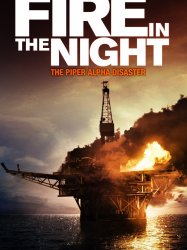
Fire in the Night (2013)
, 1h34Origin United-kingdom
Genres Documentary
Themes Environmental films, Seafaring films, Transport films, Documentary films about environmental issues, Documentary films about historical events, Documentary films about technology, Disaster films, Films about seafaring accidents or incidents
Rating75%





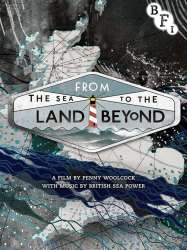
Directed by Penny Woolcock
Origin United-kingdom
Genres Documentary
Themes Films about animals, Environmental films, Seafaring films, Transport films, Documentary films about environmental issues, Documentary films about technology, Documentary films about nature
Rating79%





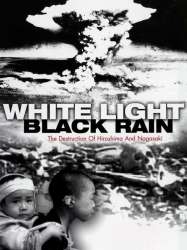 , 1h26
, 1h26Origin USA
Genres War, Documentary
Themes Environmental films, Seafaring films, Transport films, Aviation films, Documentary films about environmental issues, Documentary films about war, Documentary films about historical events, Documentary films about nuclear technology, Documentary films about technology, Political films, Documentary films about World War II
Rating81%





Les victimes d'Hiroshima et Nagasaki racontent. Les bourreaux aussi.
 Connection
Connection